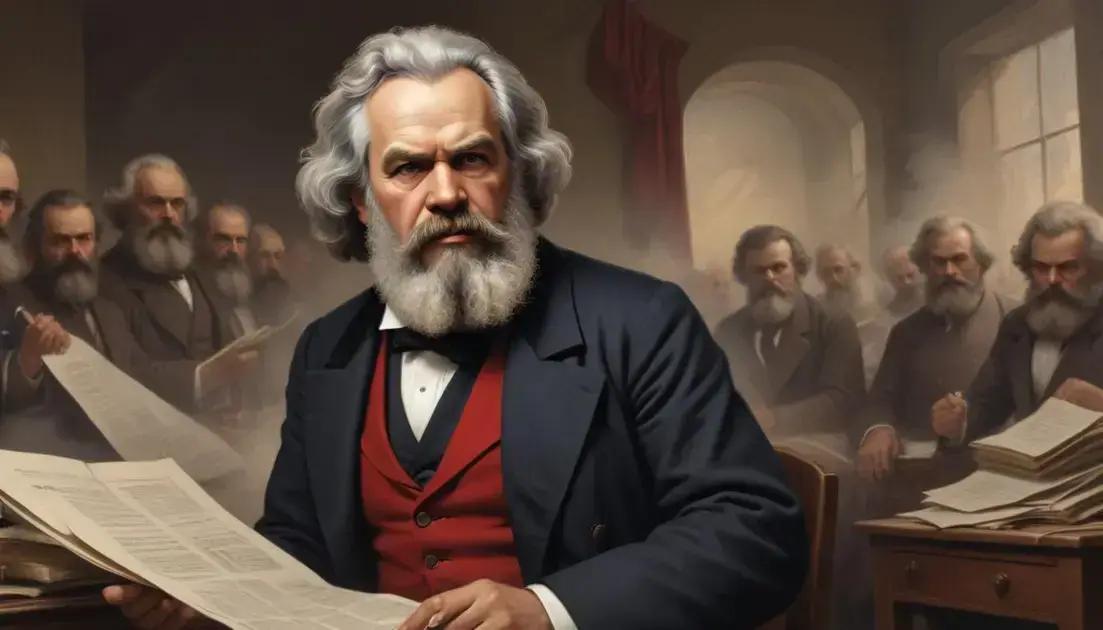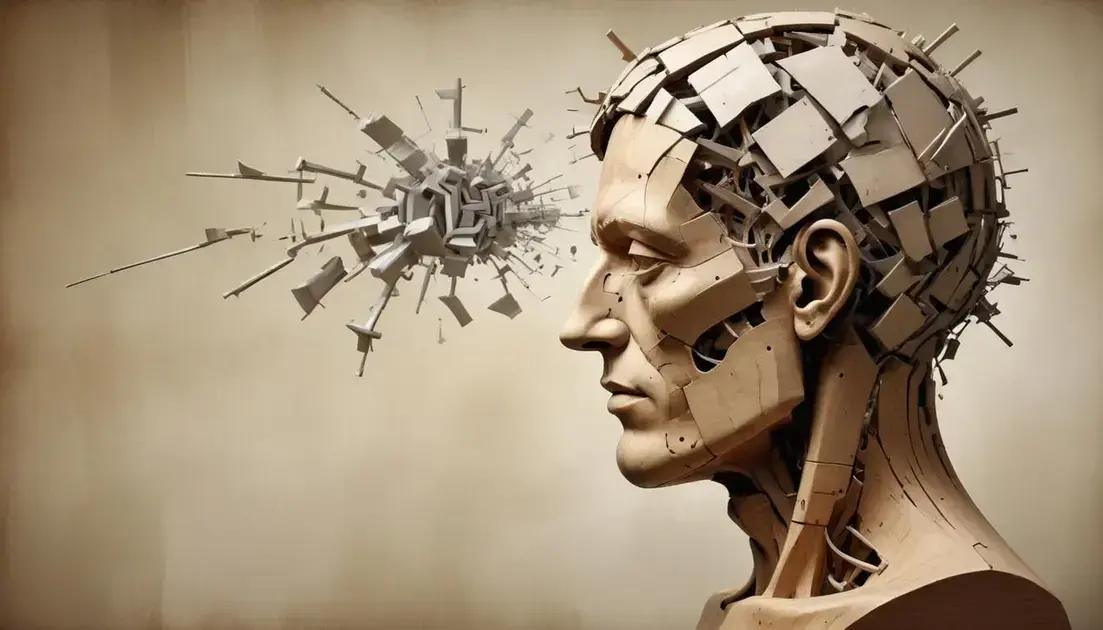
Karl Marx: Economics, Ideology and Class Struggle
Karl Marx’s theories remain relevant today as they highlight ongoing issues like economic inequality and the struggle between social classes. His key ideas about capitalism emphasize how the rich benefit from the labor of the working class. This has inspired modern movements advocating for workers’ rights and social justice, demonstrating the importance of unity among the proletariat. By understanding Marx’s perspective, we can critically discuss economic systems and work towards a more equitable society for all.
Karl Marx changed the world by exploring the dynamics of power and economics. Have you ever wondered how his ideas shape our society even today? Let’s dive in!
The life and contributions of Karl Marx
Karl Marx was born in 1818 in what we now call Germany. He came from a middle-class family and grew up in a time of great social change. Early in life, he started to study law and philosophy at university. He loved to discuss ideas and challenge old beliefs.
Marx believed that the world was unfair, especially for working people. He saw how the rich enjoyed wealth while many struggled to get by. This inspired him to think about how to create a better future.
One of his main ideas was about class struggle. He wrote that society is divided between different classes, each with its own interests. The poor laborers work hard for little pay, while the wealthy owners profit from their efforts.
In 1848, Marx published the famous “Communist Manifesto”. This book called for workers to unite and fight for their rights. It was a bold and daring call to action that spread across the globe.
Marx also wrote “Das Kapital”, where he explored how capitalism works. He discussed how money moves through society and affects people’s lives. His works are still studied today for their impact on economics and sociology.
His ideas influenced many movements for social change. People started to think differently about their roles in society. Marx’s thoughts on economics and labor continue to be discussed and debated today, showing how his legacy lives on and shapes our understanding of class and inequality.
Understanding Marx’s view on economics
Karl Marx had a unique view on economics. He believed that economics shapes society and people’s lives. For him, money and resources are crucial. He argued that the way goods are produced and distributed defines social classes.
Marx thought capitalism creates inequality. The rich, or bourgeoisie, own the means of production. This includes factories and land. The poor, known as the proletariat, sell their labor for wages. They often struggle to make ends meet.
In a capitalist system, profits go to the owners, not the workers. This is where Marx felt the system was unfair. He believed workers produce value through their labor but don’t get a fair share.
Marx introduced the concept of surplus value. Surplus value is the difference between what workers are paid and the value of what they produce. This gap benefits the owners. That’s how they get richer, while workers stay poor.
Marx also talked about how capitalism would lead to its downfall. He saw class struggle as a driving force in history. He believed that workers would eventually unite and overthrow the bourgeoisie. This could lead to a fairer system where everyone shares resources equally.
His ideas challenge us to think about fairness and equality in our economies. They encourage a conversation about who truly benefits from economic systems.
The ideology behind the class struggle
The class struggle is a central idea in Marx’s ideology. This concept explains the conflict between different social classes. In Marx’s view, these classes have opposing interests.
Marx believed that society is divided mainly into two groups: the bourgeoisie and the proletariat. The bourgeoisie owns the means of production, like factories and resources. They make profits from the work of the proletariat, or working class.
According to Marx, the proletariat is often exploited. They work hard but receive only a small part of the wealth they create. This creates a sense of unfairness and frustration. Workers might feel powerless under the control of their employers.
Marx argued that this struggle would intensify as time goes on. The working class would get tired of their situation and start to fight back. He predicted that workers would unite to demand better wages and working conditions.
This unity can lead to significant social change. Marx believed this class struggle is what drives history. Each major shift in society comes from conflicts between classes.
Marx’s ideas push us to think about fairness, rights, and equality. They ask us to consider how we can create a better society for everyone.
How Marx’s theories apply today
Karl Marx’s theories still hold relevance today. Many people see his ideas reflected in modern society. Issues like income inequality and workers’ rights are hot topics now, just as they were in Marx’s time.
Marx’s view on capitalism helps us understand our economic system better. Today, we notice the growing gap between the rich and the poor. Many workers feel underpaid and overworked. Marx’s belief that the rich get richer while the poor struggle resonates widely.
Social movements often draw on Marxist ideas. Labor unions use his concepts to fight for better wages and working conditions. These organizations remind workers of their power when they unite.
Many activists today advocate for social justice, echoing Marx’s call for equality. They push for policies that help the working class and marginalized communities. This shows how Marx’s ideas inspire actions for change.
Furthermore, discussions about capitalism’s flaws occur frequently. People question how to build a fairer economic system. While some may not call themselves Marxists, they find value in his thoughts.
In education, Marx’s theories are taught to understand historical and current events. They provide a lens to analyze social issues and economic systems. This approach encourages critical thinking about the structures that shape our lives.
Conclusion
In conclusion, Karl Marx’s theories continue to be important today. His ideas about class struggle and economic inequality challenge us to think about fairness in our society. Many people still face issues that Marx wrote about, like being underpaid and overworked.
His concepts inspire movements for workers’ rights and social justice. They help us understand our economic systems and encourage people to unite for change. By discussing and learning about his ideas, we can address modern social issues and strive for a more equal world.
Marx’s legacy lives on, reminding us that questioning the status quo is important. It’s crucial to keep talking about how we can improve our systems for everyone. Understanding his theories can help us create a better future together.


